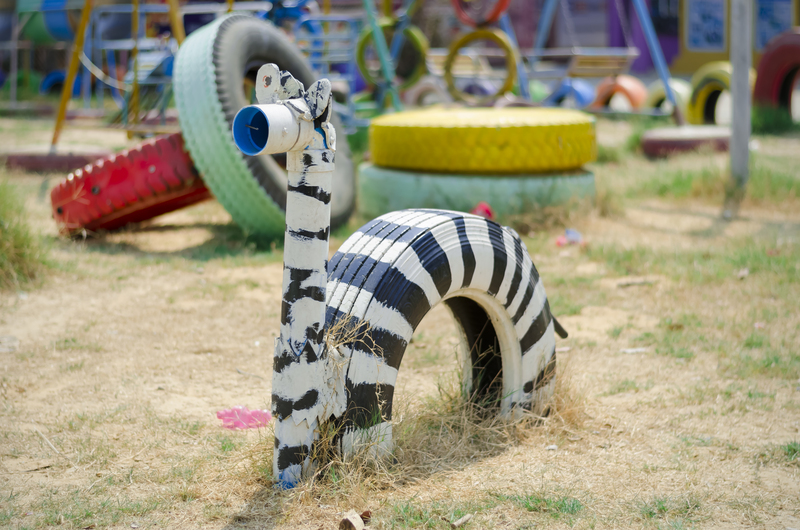The Skip Hire Blueprint: Dos and Don'ts to Follow
Managing waste efficiently is crucial to every construction, renovation, or large-scale cleaning project. One of the most convenient and eco-friendly solutions is skip hire. But are you making the most out of your skip rental? In this detailed blueprint, we'll explore the essential dos and don'ts of skip hire to help you make informed decisions. Whether you're a homeowner, contractor, or business owner, this comprehensive guide is packed with best practices, regulations, and tips for skip rental success!
Understanding Skip Hire: The Basics
Before diving into the critical rules you should follow, let's start with a brief overview. Skip hire is the process of renting a large waste container (skip) that's delivered and collected by a specialist skip hire company. These skips are available in various sizes to suit different waste disposal needs, from household clear-outs to massive construction debris.
- Domestic skips: Ideal for small home renovation or spring cleaning.
- Commercial skips: Used for building sites, office clearances, and larger projects.
- Builders' skips: The most common and versatile, found outside construction sites everywhere.
When you choose skip rental services, you benefit from safe and lawful waste disposal, time-saving convenience, and competitive rates compared to multiple trips to your local waste facility.

The Dos of Skip Hire
To maximise the effectiveness of your skip hire experience, there are certain strategies and responsibilities you need to follow. Below, we detail the most important skip hire dos:
1. Do Choose the Right Skip Size
- Assess your waste volume: Different skip sizes cater to different needs. Overestimating leads to wasted money, while underestimating requires costly additional skips. Typical options include 2-yard "mini" skips, 4-yard "midi" skips, 8-yard "builders" skips, and 12-yard "maxi" skips.
- It's better to err on the side of caution--a slightly larger skip is usually more economical than hiring a second one.
2. Do Plan the Placement
- Locate a suitable, flat surface on your property for the skip. This makes loading easier and safer.
- If the skip needs to be placed on a public road, apply for a skip permit from your local council, as required by UK law and in many other regions.
- Avoid blocking access points, driveways, and public footpaths.
3. Do Separate and Recycle Where Possible
- Many skip hire providers recycle a high percentage of collected waste. You can help by separating recyclables--such as wood, metal, cardboard, and plastics--from general rubbish when loading your skip.
- This environmentally friendly approach supports sustainability and may lower your overall disposal costs.
4. Do Follow Weight Restrictions and Fill Levels
- Never fill a skip beyond the 'fill line' marked on the container.
- Overfilled skips are illegal to transport and may result in additional charges or refusal to collect.
- Be mindful of the skip's weight limit, especially when loading heavy items like soil, rubble, or concrete. Check with your skip hire company for maximum allowable weights.
5. Do Check What Can and Can't Go in Your Skip
- Most general waste: Household items, furniture, garden waste, non-electrical fixtures, and fittings are usually accepted.
- Prohibited items: TVs, fridges, asbestos, tyres, batteries, liquids, gas cylinders, and hazardous materials. Disposal of these items requires special arrangements.
- Ask your skip hire provider for the complete list of restricted materials.
6. Do Use Skip Hire for Legal and Responsible Waste Disposal
- Hiring a skip ensures your waste is handled in accordance with waste management regulations.
- Make sure your chosen provider is licensed and insured.
- You may be asked to sign documentation confirming what's in your skip; honesty and transparency are key.
The Don'ts of Skip Hire
Equally important are the common mistakes and pitfalls you should avoid throughout the skip rental process. Let's explore the major skip hire don'ts:
1. Don't Place Hazardous Materials in Your Skip
- Hazardous substances such as asbestos, solvents, paints, oils, tyres, and electrical appliances must not be deposited in a standard skip.
- Illegal disposal can result in heavy fines and even criminal prosecution.
- Contact the council or a specialist waste handler for proper disposal of dangerous items.
2. Don't Overfill or Overload the Skip
- Materials protruding above the fill line present a safety hazard and are illegal for transport.
- Overfilled or overweight skips may be refused collection, incurring extra charges and project delays.
- If you're unsure, ask your skip company for guidance before collection day.
3. Don't Block Public Access or Endanger Safety
- Skips on public highways without the appropriate permit can be subject to removal and fines.
- Always ensure the skip does not block footpaths, driveways, fire exits, or emergency routes.
- For skips placed on roads, use required safety markings, reflective covers, and warning lights, especially during the night.
4. Don't Allow Unauthorised Waste ("Fly Tipping")
- If your skip is left open or unrented, others may illegally deposit their waste--known as "fly tipping"--potentially leaving you liable for unauthorised contents.
- Close the skip with a tarpaulin or board when not in use.
- Notify your provider if you suspect fly tipping so they can document and advise you on the next steps.
5. Don't Burn Waste in Your Skip
- Never light fires in your skip. Burning waste releases toxic fumes, damages the skip, and is illegal.
- If fire damage is discovered, you may forfeit your deposit and face penalties from the skip company.
6. Don't Ignore Company Guidelines and Local Regulations
- Each skip hire company and local council operates under slightly different rules.
- Always ask for and read the hire agreement and comply with their instructions.
- When in doubt, contact your service provider for up-to-date guidance.
Maximising Value: Advanced Skip Hire Tips
Now you know the essentials of skip hire dos and don'ts, here are some advanced tips for getting the best value and minimising hiccups on your project:
Book in Advance
- Popular skip hire companies may have limited availability during peak seasons (spring/summer and bank holidays). Secure your skip early to avoid disappointment.
Stack and Arrange Waste Efficiently
- Break down bulky items and flatten boxes to optimise space.
- Load flat items at the bottom, then heavier waste, followed by lighter or irregular shapes.
- Distribute materials evenly to avoid overloading on one side.
Monitor the Skip Regularly
- Check your skip each day to prevent overfilling and monitor for unauthorised dumping.
- Close or cover the skip when you're not present on site, especially overnight.
Understand the Time Limits
- Most providers offer skips for 1-2 weeks as standard.
- If you need the skip for longer or shorter periods, communicate your requirements upfront to avoid extra fees.
Environmental Benefits of Responsible Skip Hire
Responsible skip hire is not just about convenience--it's a vital contributor to sustainability:
- Diverts waste from landfill: By recycling materials, you contribute to a cleaner environment.
- Supports local economies: Many skip companies employ local staff and use local waste processing plants.
- Reduces pollution: Fewer individual trips to the tip means lowered transport emissions.
Choosing the Right Skip Hire Provider
Before making your final decision, consider these factors for a stress-free skip hire experience:
- Licensing and insurance: Always verify certifications with your local environmental agency.
- Transparent pricing: Look for companies that offer clear, all-inclusive quotes with no hidden charges.
- Customer reputation: Check independent reviews and testimonials online for peace of mind.
- Range of services: Some providers offer hazardous waste disposal, grab lorry hire, and related solutions--ask about extras when you book!
Summary Table: Skip Hire Do's and Don'ts
| Do's | Don'ts |
|---|---|
| Select the right size skip Plan for legal placement Recycle and separate waste Follow weight and fill guidelines Confirm acceptable materials Work with licensed companies |
Don't dump hazardous materials Don't overfill/overload Don't block public access Don't permit fly tipping Don't burn waste Don't ignore legal requirements |

Frequently Asked Questions on Skip Hire
1. How do I know what skip size to hire?
Estimate your waste volume--one yard is approximately the size of a standard wheelie bin. Use the skip hire company's sizing guide and consult them directly if unsure.
2. What happens if my skip contains forbidden items?
The skip company may refuse collection or charge additional fees to safely remove prohibited materials. Always review their list before loading the skip.
3. Can skips go on the road outside my property?
Yes, but skips placed on public highways require a local council permit and must adhere to safety rules. The skip supplier often arranges this on your behalf--check before booking.
4. How long can I keep a skip?
The hire period typically lasts 1-2 weeks, but most providers offer extensions for a fee. Always discuss your schedule in advance.
5. What if I fill my skip earlier than expected?
Contact your provider to arrange an earlier collection or hire an additional skip if more waste needs to be disposed of.
Conclusion: Your Skip Hire Blueprint for Success
Skip hire is the efficient, responsible, and eco-friendly answer to large-scale waste clearance. By following this blueprint of dos and don'ts, you'll avoid legal pitfalls, protect the environment, maximise your value for money, and enjoy a hassle-free project from start to finish.
- Choose the correct skip size and provider for your needs.
- Comply with local regulations and weight limits.
- Never dispose of hazardous or restricted items in a standard skip.
- Prioritise recycling and sustainable practices.
- Always clarify queries with your skip hire company--when in doubt, ask!
Following these simple rules ensures you gain all the benefits of skip hire services, reduce your environmental impact, and keep your project on track. Ready to book a skip? Trust only fully licensed, transparent providers and enjoy safe, reliable waste disposal every time.